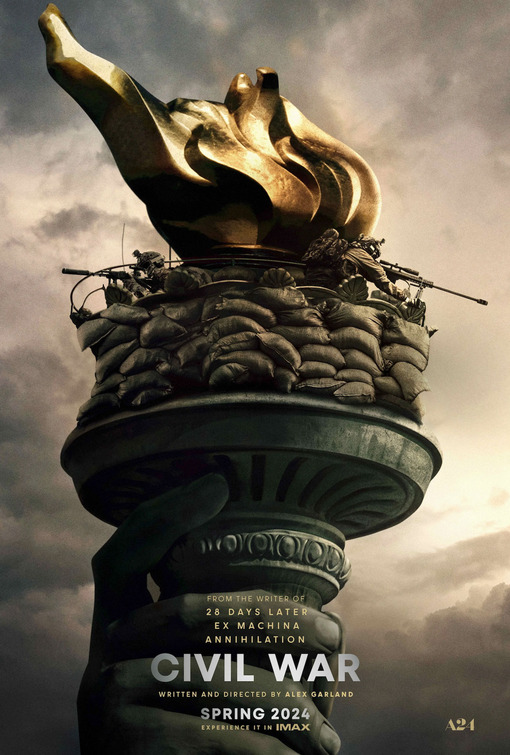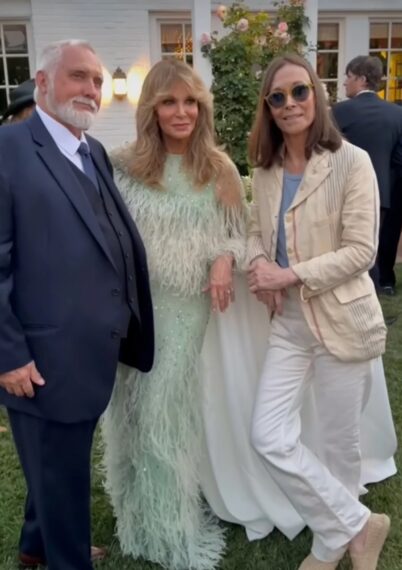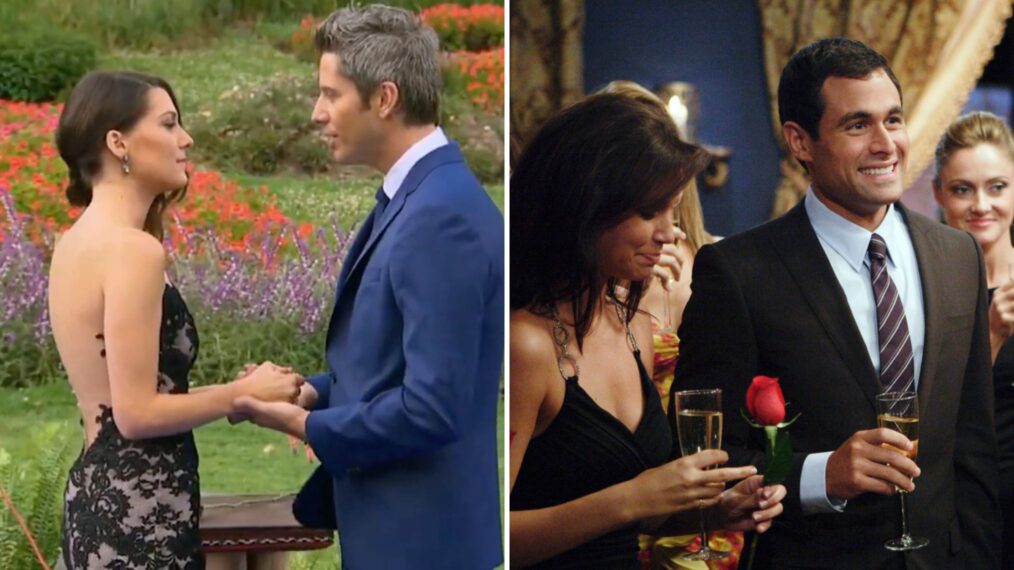
Alex Garland’s Civil War depicts how shit would go down in the United States should the federation fracture. A viscerally entertaining suspense thriller that works better as just that–versus the commentary on the current state of the union many were expecting given… the current state of the union–Civil War is a worthwhile experience, even if it doesn’t achieve the intellectual heights Garland was clearly shooting for.
Kirsten Dunst, Wagner Moura (“Narcos”), Cailee Spaeny (Priscilla), and Stephen McKinley Henderson (Dune: Part One) star as photojournalists attempting to make their way to besieged Washington D.C. as the successionist Western Front tightens its grip. Along the way they encounter the horrors of war and several treacherous situations.
Garland is among my favorite filmmakers, having made the excellent Ex Machina and ambitious Annihilation, along with the limited series Devs (never mind that he also made the misfire that is Men, and even then the movie has a lot to like). Civil War delivers more of what I’ve come to expect from Garland: visual intensity and starkness, diamond-sharp moments that leave you breathless, and the ability to establish a sense of mounting dread.
Scene by scene, Civil War is superbly made. The opening sequence sets the tone, both for the movie and for introducing us to Kirsten Dunst’s battle-hardened Lee. Another, a chilling series of events involving Dunst’s real-life husband Jesse Plemmons, will stay with you long after the movie’s over. Garland’s use of the United States, including D.C.’s monuments, as ground zero for a deadly war, is unsettling.
It’s an action-thriller seen through the eyes of characters who are attempting to remain neutral.
Beyond that, Civil War doesn’t work as well.
One benefit of seeing the movie a few days after most other critics is that I had already heard the discord about Garland’s refusal to tackle real issues currently at play within the U.S. The potential of Civil War has been discussed more in the last four years than ever before, yet the movie barely addresses the rise of Trump populism, religious dichotomy, and extremism. There’s another movie to be made that tackles those issues head on with a clear point of view (The Purge franchise comes the closest, maybe?); Civil War is not that movie.
Going in knowing what to expect, that didn’t bother me a whole lot. What Garland does miss the mark on is the opportunity to dig deeper into this fictional world he’s created. While you get a very brief explanation as to the specific actions that led to shit hitting the fan, Garland completely glosses over the complexities that would have given this world richer subtext and subsequently made the movie feel more complete.
As is, it’s an exciting suspense thriller that bills itself as something more important than it actually is. This is a piece of fiction with little commentary on the real world, but you can tell Garland intended it to be much more. The climax is a good example: it’s a well-made and suspenseful sequence of war action, but it almost feels like something out of a gritty video game rather than anything with real substance. As explosive as it is, it also feels like a betrayal of the characters’ motivations and purpose.
Criticisms aside, there’s a lot to like. The cast is incredible, most notably Moura. Plemmons, who apparently did his “cameo” as a favor to his wife, is a scene-stealer. Henderson is great as a moral compass and emotional center to a group of individuals who effectively operate outside standard conventions of morality and emotion.
Civil War is a worthwhile viewing experience, as long as you approach it for what it is: a suspense thriller. As soon as you start expecting or wanting more, you’ll be in trouble.
Review by Erik Samdahl unless otherwise indicated.


























































![Mason Ramsey – Twang [Official Music Video] Mason Ramsey – Twang [Official Music Video]](https://i.ytimg.com/vi/xwe8F_AhLY0/maxresdefault.jpg)






![‘Mute Witness’ – Watch the Trailer for Arrow Video’s 4K Restoration of the 1995 Horror Movie [Exclusive] ‘Mute Witness’ – Watch the Trailer for Arrow Video’s 4K Restoration of the 1995 Horror Movie [Exclusive]](https://essentiallyhollywood.com/wp-content/themes/jnews/assets/img/jeg-empty.png)













